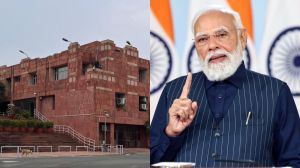Centre seeks auto majors views on duty structure for CKD/SKD kits
OCT 7: The government has asked Hyundai Motor India, Ford India and Telco to define the scope of completely-knocked down kits CKDs, semi...

OCT 7: The government has asked Hyundai Motor India, Ford India and Telco to define the scope of completely-knocked down kits CKDs, semi-knocked down kits SKDs and completely built units CBUs to fix appropriate import tariffs.
It is for the first time that the government has decided to take each company8217;s independent view while formulating a comprehensive automobile policy.
Sources said the differences between industry representatives 8212; Society of Indian Automobile Manufacturers SIAM and Automotive Component Manufacturers Association ACMA over the proposed tariff structures may have prompted the move.
quot;Our suggestion to the government will be to keep the duties minimum for raw materials and maximum for CBUs as this would in the industry8217;s interestquot;, an industry representative informed.
Confirming the move, a senior Telco official told
quot;the government has invited our views and we will get back to them soonquot;. There are divergent views within the industry on the proposed duty structure for CKD/SKD to be evolved by the government.
On one hand, the SIAM has suggested a five-tier duty structure, under which used vehicle imports attract the maximum duty of 100 per cent. New completely-built units may attract 70 per cent customs duty, while CKD/SKD kits a duty of 40 per cent, the industry has said.
On the other hand, ACMA has recommended the duty on all components to remain at the level of 40 per cent after quantitative restrictions are removed next year.
Clarifications on CKD and SKD would help the government in fixing tariff level which is a crucial part of the automobile policy. These duties determine time schedules of the models which the company plans to manufacture. The localisation programme of a particular model also depends on the tariff structure.
The industry is also divided on the issue of tariffs for completely-built units. If the landed cost of the CBU is the same as that of the kits, then the indigenisation of the industry would take a back seat.
The government also has to take a decision on whether second hand car imports would be allowed. On this subject too, car companies along with the industry organisation have communicated the fact that allowing used car imports would be detrimental in their interest.
The domestic industry which has invested huge amounts of money in thecountry would be killed once the cheaper car imports start coming into the country.
The government should ensure that the servicing and safety aspects of the cars being imported are taken care before opening up the sector completely.
- 01
- 02
- 03
- 04
- 05































